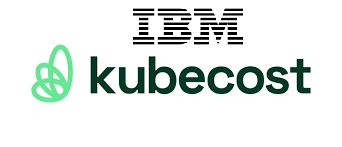Key Takeaways
- IBM has acquired Kubecost to enhance its hybrid cloud cost management capabilities.
- Kubecost provides advanced Kubernetes cost monitoring and optimization solutions.
- This acquisition is expected to strengthen IBM’s FinOps suite, which already includes Apptio and Turbonomic.
- The deal will help IBM offer more comprehensive cost management tools for cloud-native applications.
- Market reactions have been largely positive, anticipating significant improvements in cost efficiency for IBM’s clients.
IBM Acquires Kubecost: Impact, Details & Analysis
IBM’s acquisition of Kubecost marks a significant step in its ongoing strategy to bolster its hybrid cloud offerings. The deal, announced on September 17, 2024, aims to integrate Kubecost’s leading Kubernetes cost monitoring and optimization software into IBM’s existing suite of financial operations (FinOps) tools.
IBM Expands its Hybrid Cloud Strategy
IBM has been making substantial moves to expand its hybrid cloud capabilities, and the acquisition of Kubecost is a crucial part of this strategy. With the growing adoption of Kubernetes, managing costs effectively has become a top priority for organizations. By integrating Kubecost, IBM aims to provide a comprehensive solution that addresses this need.
Kubecost’s advanced features will complement IBM’s existing tools, such as Apptio and Turbonomic, creating a robust ecosystem for cost management. This integration is expected to enhance IBM’s ability to offer end-to-end solutions for hybrid cloud environments, making it easier for businesses to manage their cloud expenses efficiently.
How Kubecost Enhances IBM’s Offerings
Kubecost brings several key features to IBM’s portfolio:
- Real-time cost monitoring: Kubecost provides detailed insights into Kubernetes costs, helping organizations track their spending in real-time.
- Cost optimization: The software offers recommendations for cost-saving opportunities, such as rightsizing resources and identifying unused assets.
- Integration capabilities: Kubecost seamlessly integrates with popular cloud platforms, making it easier for businesses to manage costs across multiple environments.
These features will enhance IBM’s existing FinOps suite, providing clients with more powerful tools to manage their cloud-native applications. The integration of Kubecost is expected to streamline cost management processes, making it easier for businesses to optimize their cloud spending and achieve better financial outcomes.
Market Response to the Acquisition
The market has responded positively to IBM’s acquisition of Kubecost. Industry analysts and stakeholders see this move as a strategic step that will strengthen IBM’s position in the hybrid cloud market. The addition of Kubecost’s capabilities is expected to bring significant benefits to IBM’s clients, helping them achieve greater cost efficiency and better manage their cloud resources.
Most importantly, this acquisition demonstrates IBM’s commitment to providing comprehensive solutions that address the evolving needs of businesses in the cloud era. By continuously enhancing its offerings, IBM aims to stay ahead of the competition and deliver value to its clients, as seen in their efforts to optimize Kubernetes costs.

The Importance of Kubernetes in Modern Cloud Environments
Why Kubernetes is Crucial for Businesses
Kubernetes has become a cornerstone of modern cloud environments, enabling businesses to deploy, manage, and scale their applications with ease. Its ability to automate container orchestration and manage complex workloads has made it a popular choice among organizations of all sizes.
Besides that, Kubernetes offers several benefits that make it crucial for businesses:
- Scalability: Kubernetes can scale applications up or down based on demand, ensuring optimal performance and resource utilization.
- Portability: Applications deployed on Kubernetes can run on any cloud platform, providing flexibility and reducing vendor lock-in.
- Resilience: Kubernetes ensures high availability and fault tolerance, minimizing downtime and improving reliability.
Current Trends in Kubernetes Adoption
The adoption of Kubernetes has been growing rapidly, with a recent survey indicating that 84% of organizations are using or planning to use Kubernetes in their cloud environments. This trend is driven by the need for greater agility, scalability, and cost efficiency in managing cloud-native applications.
Furthermore, as businesses continue to embrace digital transformation, the demand for Kubernetes expertise is on the rise. Organizations are investing in training and hiring skilled professionals to manage their Kubernetes deployments, ensuring they can leverage the full potential of this powerful technology.
Challenges in Managing Kubernetes Costs
Despite its many benefits, managing costs in Kubernetes environments can be challenging. Organizations often struggle with issues such as:
- Lack of visibility: Without proper monitoring tools, it can be difficult to track and understand Kubernetes costs.
- Resource wastage: Inefficient resource allocation and underutilized assets can lead to unnecessary expenses.
- Complex billing: Kubernetes environments can involve multiple cloud providers and pricing models, making cost management more complex.
Therefore, effective cost management solutions like Kubecost are essential for organizations to optimize their Kubernetes spending and achieve better financial outcomes.
Kubecost: Company Overview
Origins and Growth of Kubecost
Kubecost was founded with the mission to help organizations manage and optimize their Kubernetes costs. Since its inception, the company has grown rapidly, becoming a leading provider of cost monitoring and optimization solutions for Kubernetes environments.
Through continuous innovation and a strong focus on customer needs, Kubecost has established itself as a trusted partner for businesses looking to gain better control over their cloud spending.
Key Features and Benefits of Kubecost
Kubecost offers a range of features designed to help organizations manage their Kubernetes costs effectively:
- Real-time cost monitoring: Provides detailed insights into Kubernetes costs, helping organizations track their spending in real-time.
- Cost optimization: Offers recommendations for cost-saving opportunities, such as rightsizing resources and identifying unused assets.
- Integration capabilities: Seamlessly integrates with popular cloud platforms, making it easier for businesses to manage costs across multiple environments.
These features enable organizations to gain better visibility into their Kubernetes costs, optimize their resource allocation, and achieve significant cost savings.
Kubecost was founded with the mission to help organizations manage and optimize their Kubernetes costs. Since its inception, the company has grown rapidly, becoming a leading provider of cost monitoring and optimization solutions for Kubernetes environments.
Through continuous innovation and a strong focus on customer needs, Kubecost has established itself as a trusted partner for businesses looking to gain better control over their cloud spending.
Key Features and Benefits of Kubecost
Kubecost offers a range of features designed to help organizations manage their Kubernetes costs effectively:
- Real-time cost monitoring: Provides detailed insights into Kubernetes costs, helping organizations track their spending in real-time.
- Cost optimization: Offers recommendations for cost-saving opportunities, such as rightsizing resources and identifying unused assets.
- Integration capabilities: Seamlessly integrates with popular cloud platforms, making it easier for businesses to manage costs across multiple environments.
These features enable organizations to gain better visibility into their Kubernetes costs, optimize their resource allocation, and achieve significant cost savings.
Customer Base and Market Position
Kubecost has built a diverse customer base, ranging from small startups to large enterprises. Its solutions are used by companies across various industries, including technology, finance, healthcare, and retail. This widespread adoption is a testament to the effectiveness and reliability of Kubecost’s offerings.
In the competitive landscape of Kubernetes cost management, Kubecost has carved out a strong market position. Its focus on delivering value to customers and continuously improving its solutions has helped it stand out from other players in the market.
Details of the Acquisition Deal
The acquisition of Kubecost by IBM is a strategic move that aims to enhance IBM’s hybrid cloud cost management capabilities. This section delves into the specifics of the deal, including financial terms, integration strategies, and immediate changes for Kubecost’s cost optimization products and services.
Financial Terms of the Acquisition
While the exact financial terms of the acquisition have not been disclosed, industry experts estimate that the deal is valued at several hundred million dollars. This significant investment underscores IBM’s commitment to strengthening its FinOps suite and providing comprehensive cost management solutions for its clients.
The acquisition is expected to bring substantial financial benefits to both companies, with Kubecost gaining access to IBM’s extensive resources and customer base, and IBM enhancing its portfolio with Kubecost’s advanced capabilities.
Integration Strategy with IBM’s Existing Tools
Integrating Kubecost with IBM’s existing tools is a critical aspect of the acquisition. IBM plans to seamlessly incorporate Kubecost’s features into its FinOps suite, which already includes Apptio and Turbonomic. This integration will create a unified platform for managing cloud costs, offering clients a comprehensive solution that covers all aspects of financial operations.
The integration strategy involves several key steps:
- Technical integration: Ensuring that Kubecost’s software works seamlessly with IBM’s existing tools and platforms.
- Customer transition: Providing support and resources to help Kubecost’s existing customers transition smoothly to the integrated platform.
- Product enhancements: Leveraging IBM’s expertise and resources to further enhance Kubecost’s capabilities and deliver even greater value to clients.
“The integration of Kubecost into our FinOps suite will enable us to offer a more comprehensive and powerful solution for managing cloud costs,” said Ajay Patel, GM of Apptio and IBM Automation.
Immediate Changes for Kubecost’s Products and Services
Following the acquisition, Kubecost’s products and services will undergo several immediate changes. These changes aim to align Kubecost’s offerings with IBM’s broader strategy and enhance the overall value provided to customers.
Some of the immediate changes include:
- Rebranding: Kubecost will be rebranded to reflect its integration into IBM’s FinOps suite, with updated logos, branding materials, and marketing collateral.
- Product enhancements: IBM will leverage its resources to introduce new features and improvements to Kubecost’s software, making it even more effective and user-friendly.
- Customer support: Existing Kubecost customers will gain access to IBM’s extensive support network, ensuring they receive the assistance they need to make the most of the integrated platform.
“Our goal is to make the transition as smooth as possible for our customers while enhancing the value they receive from our solutions,” said a spokesperson from Kubecost.
Impact on IBM and Kubecost
The acquisition of Kubecost is expected to have a significant impact on both IBM and Kubecost. This section explores the advantages for IBM’s hybrid cloud portfolio, the enhanced cost management solutions, and potential challenges post-acquisition.
Advantages for IBM’s Hybrid Cloud Portfolio
By acquiring Kubecost, IBM will strengthen its hybrid cloud portfolio with advanced cost management capabilities. This move aligns with IBM’s strategy to provide end-to-end solutions for managing cloud-native applications and addressing the evolving needs of businesses in the cloud era.
Most importantly, the integration of Kubecost will enable IBM to offer a more comprehensive and powerful solution for managing cloud costs, helping clients achieve better financial outcomes and optimize their resource allocation.
Enhanced Cost Management Solutions
The addition of Kubecost to IBM’s FinOps suite will enhance the overall cost management capabilities offered to clients. With real-time cost monitoring, cost optimization recommendations, and seamless integration with popular cloud platforms, clients will have access to a robust set of tools for managing their cloud expenses.
These enhanced cost management solutions will enable businesses to gain better visibility into their cloud spending, identify cost-saving opportunities, and make more informed decisions about resource allocation.
Potential Challenges Post-Acquisition
While the acquisition of Kubecost brings many benefits, there are also potential challenges that IBM and Kubecost will need to address. Some of these challenges include:
- Integration complexities: Ensuring that Kubecost’s software integrates seamlessly with IBM’s existing tools and platforms may require significant technical effort and resources.
- Customer transition: Helping Kubecost’s existing customers transition smoothly to the integrated platform will require effective communication and support.
- Maintaining innovation: As Kubecost becomes part of a larger organization, it will be important to maintain the agility and innovation that have been key to its success.
By proactively addressing these challenges, IBM and Kubecost can ensure a successful integration and continue to deliver value to their clients.
Predicted Moves in the Cloud Management Market
The acquisition of Kubecost by IBM is likely to trigger a series of strategic moves in the cloud management market. Competitors will need to reassess their positions and consider similar acquisitions or partnerships to stay competitive. Companies like Microsoft, Google, and Amazon, which have their own cloud platforms, may look to enhance their cost management capabilities to match IBM’s newly bolstered offerings.
Additionally, smaller players in the Kubernetes cost management space might see increased interest from larger tech companies looking to expand their portfolios. This could lead to a wave of mergers and acquisitions, further consolidating the market and driving innovation in cost management solutions.
How Competitors Might React
Competitors are expected to respond to IBM’s acquisition of Kubecost in several ways:
- Enhancing their own offerings: Companies like Microsoft Azure and Google Cloud may invest in developing or acquiring similar cost management tools to offer comprehensive solutions to their clients.
- Strategic partnerships: Competitors might form alliances with specialized cost management firms to quickly integrate advanced capabilities into their platforms.
- Marketing campaigns: Rivals could launch marketing campaigns highlighting the strengths of their own solutions and differentiating themselves from IBM’s offerings.
These reactions will likely lead to increased competition in the cloud management market, ultimately benefiting customers with more innovative and effective solutions.
Long-term Prospects for IBM and Kubecost
In the long term, the acquisition of Kubecost is expected to yield significant benefits for both IBM and Kubecost. For IBM, the integration of Kubecost’s advanced cost management capabilities will strengthen its hybrid cloud portfolio and enhance its ability to offer comprehensive solutions to clients. This move aligns with IBM’s strategy to lead the market in cloud-native applications and financial operations.
For Kubecost, becoming part of IBM provides access to extensive resources, a broader customer base, and opportunities for further innovation. The collaboration between IBM and Kubecost will likely result in continuous improvements to the integrated platform, delivering even greater value to clients over time.
Conclusion
The acquisition of Kubecost by IBM marks a significant milestone in the cloud management market. By integrating Kubecost’s advanced cost monitoring and optimization solutions into its FinOps suite, IBM is poised to offer more comprehensive and powerful tools for managing cloud-native applications. This move aligns with IBM’s strategy to lead the market in hybrid cloud solutions and deliver greater value to its clients.
Summary of Key Impacts
The acquisition of Kubecost is expected to have several key impacts:
- Enhanced hybrid cloud cost management capabilities for IBM.
- Improved cost visibility and optimization for clients.
- Positive market response and increased competition.
- Potential challenges in integration and customer transition.
Final Thoughts on the Acquisition
Overall, IBM’s acquisition of Kubecost is a strategic move that positions the company for continued success in the cloud management market. By addressing the challenges of Kubernetes cost management and providing comprehensive solutions, IBM aims to deliver greater value to its clients and stay ahead of the competition. The long-term prospects for both IBM and Kubecost are promising, with opportunities for further innovation and growth.
Frequently Asked Questions (FAQ)
Why did IBM acquire Kubecost?
IBM acquired Kubecost to enhance its hybrid cloud cost management capabilities. By integrating Kubecost’s advanced cost monitoring and optimization solutions, IBM aims to provide more comprehensive tools for managing cloud-native applications and addressing the evolving needs of businesses.
How will this acquisition affect Kubecost’s current customers?
Kubecost’s current customers will benefit from enhanced support and resources provided by IBM. They will also gain access to new features and improvements introduced as part of the integration with IBM’s FinOps suite. IBM is committed to ensuring a smooth transition for existing customers and maintaining the high level of service they have come to expect.
What benefits does Kubecost bring to IBM’s portfolio?
Kubecost brings several key benefits to IBM’s portfolio, including real-time cost monitoring, cost optimization recommendations, and seamless integration with popular cloud platforms. These features will enhance IBM’s existing FinOps suite, providing clients with more powerful tools to manage their cloud expenses and optimize resource allocation.
Will there be any changes to Kubecost’s existing pricing models?
While specific details about changes to Kubecost’s pricing models have not been disclosed, IBM aims to provide competitive and transparent pricing for its integrated solutions. Existing customers will be informed of any changes and provided with support to transition smoothly to the new pricing structure.



